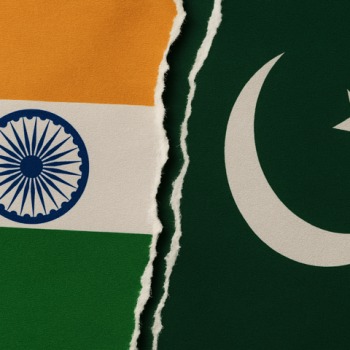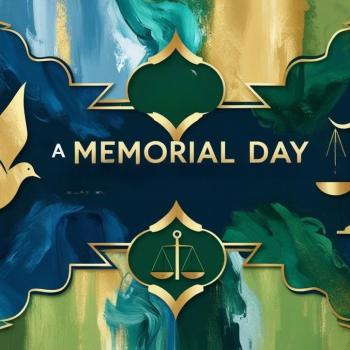by Zohaa Pall
Hajj is one of the five pillars of Islam and it is a pilgrimage to the Ka’bah performed in the Islamic month of Dhul Al-Hijjah. The Ka’bah, a black structure, is the most sacred site in Islam. It is located in the holy city of Mecca, Saudi Arabia. God Almighty says in the Holy Quran in chapter 3 verse 98, “In it are manifest Signs; it is the place of Abraham; and whoso enters it, is safe. And pilgrimage to the House is a duty which men – those who can find a way thither – owe to GOD. And whoso disbelieves, let him remember that GOD is surely Independent of all creatures.” This pilgrimage is enjoined upon every able-bodied Muslim to perform once in a lifetime if possible. Some of the rites of Hajj are as follows:
- Women wear simple clothing and men dress into 2 loose sheets called Ihram.
- Trimming or shaving hair is an important feature
- At the end of the pilgrimage, whoever can afford to sacrifice an animal like sheep, goat, cow, or camel does so or either joins to make a sacrifice.
The act of performing Hajj while wearing the same attire exemplifies equality in mankind. It strongly resonates with the theme of the holy Quran that God Almighty has created all human beings equally and that no soul is superior to another and vice-versa.
Following Hajj, Eid ul Adha, an Islamic festival of sacrifice, occurs ten weeks after Eid-ul-Fitr and marks the completion of Hajj. This festival commemorates the obedience of Hazrat Ibrahim (as) and his son Hazrat Ismail (as) to God Almighty. Hazrat Ibrahim [as] was shown a series of dreams in which he saw himself sacrificing his oldest son, Ismail (as). Although Ismail (as) was born to Ibrahim (as) and Hajrah (as) at a very old age, he inferred that it was perhaps the will of God that he should sacrifice the life of his son. This was a test of faith of the highest order. However, when Hazrat Ibrahim (as), being most obedient to God, was about to sacrifice the life of his son Ismail, God commanded him to stop and gave him the good news that he had indeed fulfilled his command. He was instructed to sacrifice a lamb instead. God was well pleased with Ibrahim (as) and multiplied his progeny into billons. He was given the great honor of being the forefather of the Holy Prophet of Islam, Muhammad (saws), and in fact, the father of all Abrahamic religions; Judaism, Christianity, and Islam.
Hence, in the commemoration of this important incident, Muslims are enjoined to sacrifice an animal following the Eid-ul-Adha prayer in the early hours of the day. The meat of the animal is shared with neighbors and the needy people of the society.
Eid-ul-Adha, although a day of rejoice, is also a day of reflection of the highest level for the sacrifice that is required of Muslims. It is a symbolic gesture to sacrifice worldly things that we hold very dear; our wealth, time, and honor in the service of faith.
These practices in Islam enlighten us to take high moral grounds, and teach to serve mankind by sacrificing in the way of God Almighty.












